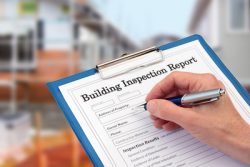 You can always buy properties through auctions and not go with traditional methods. There are certain benefits of buying a property through an auction. You can acquire it at a discount and chances are that you will face relatively less competition. The drawback is you might have only a limited knowledge of the properties and quote more than what it is really worth. You will have to get an attorney who will guide you through the paperwork and the final sale.
You can always buy properties through auctions and not go with traditional methods. There are certain benefits of buying a property through an auction. You can acquire it at a discount and chances are that you will face relatively less competition. The drawback is you might have only a limited knowledge of the properties and quote more than what it is really worth. You will have to get an attorney who will guide you through the paperwork and the final sale.
Properties are auctioned when the owners have not paid the mortgage for a few months. A default notice is filed by the bank and if the buyer is unable to renegotiate with the lender, the lender can put up the property for auction. These auctions are usually held by the banks. It is a slightly risky way to buy a property but if you have knowledge about the market the auction process, it is a good way.
Another type of auction is when the owner is unable to pay the property taxes. In this case, the tax authority gets hold of the property and the auction is directed by the local sheriff or the comptroller’s office. These auctions are advertised through local governments and real estate brokers on online auction websites. They do not permit or sanction an inspection of the property. You must go to the estate agents if the property is deteriorated or in a risky condition. You must have a clear understanding of the auction rules and you must check for claims, occupants, and liens before bidding. These auctions take place at the courthouses and conference rooms and sometimes, even online.
Getting All the Information

To find out about the auctions, one must communicate with the local governments or visit the websites. Local brokers can also provide information, but they may not help because they do not earn commissions on such auctions. One can work with the real estate agents, contractors, and appraisers to get an estimate or valuation of the property and even the remodelling cost. You must also be aware that these auctions can be annulled or suspended at the last minute. You must always be ready to follow the rules of the auction. Do note that you will have to register and pay a deposit which will be about 5 to 10% of the property’s price.
These auctions generally work in two methods. The first is when the lender does not have to accept your offer even if the bidding is the highest and the second is an absolute auction in which the highest bidder wins. Most of the time, these properties are sold at less than their true value. If there is a profit, the homeowner gets it after the mortgages are paid. In order to bid at the auction, you need to bring cash, check, or money order. You will have to pay the whole amount as soon as you win, or you will not be allowed to take over the house.

 Before purchasing a home, it is prudent to look behind the deal as to the hidden costs which you are liable to pay. It will increase your total budget at the last minute. First, select a home of your liking and once you are satisfied with the location, cost, and structure of the house, then arrange for funding. The most common way of raising funds to purchase a house is by way of mortgage. The process of getting a loan sanctioned and disbursed is a long one as many formalities need to be fulfilled.
Before purchasing a home, it is prudent to look behind the deal as to the hidden costs which you are liable to pay. It will increase your total budget at the last minute. First, select a home of your liking and once you are satisfied with the location, cost, and structure of the house, then arrange for funding. The most common way of raising funds to purchase a house is by way of mortgage. The process of getting a loan sanctioned and disbursed is a long one as many formalities need to be fulfilled. Credit History
Credit History  If you happen to be a first-time buyer, then one of the first things you would have to do is get a pre-approval from the lender. The lower the mortgage rate, the more the buyers waiting to purchase. In Canada, a real estate agent will guide you only if you have a pre-approval for a mortgage. This also raises your confidence that funds can be received immediately if a deal is struck.
If you happen to be a first-time buyer, then one of the first things you would have to do is get a pre-approval from the lender. The lower the mortgage rate, the more the buyers waiting to purchase. In Canada, a real estate agent will guide you only if you have a pre-approval for a mortgage. This also raises your confidence that funds can be received immediately if a deal is struck. This may not be your first or the last home. So, don’t be too calculative for you are going to move some years later or at least let it out as an investment.
This may not be your first or the last home. So, don’t be too calculative for you are going to move some years later or at least let it out as an investment. Credit score: If you are looking for more money to cover the purchase of your house, you need a loan. The better the credit score you have, the easier it is to get the loan approved from the lending institutions.
Credit score: If you are looking for more money to cover the purchase of your house, you need a loan. The better the credit score you have, the easier it is to get the loan approved from the lending institutions. Home inspection: The buyer should check the inspectors’ credential as they are ones on whom you are relying on to ensure your investment is worth it.
Home inspection: The buyer should check the inspectors’ credential as they are ones on whom you are relying on to ensure your investment is worth it. In simple words, if you’re getting ready to buy, it is crucial that you attend a few open houses before you zero-in on a property you think will suit your requirements. However, many prospective homebuyers want to know how many open houses they should attend before they buy. The fact is there is no right answer to this question.
In simple words, if you’re getting ready to buy, it is crucial that you attend a few open houses before you zero-in on a property you think will suit your requirements. However, many prospective homebuyers want to know how many open houses they should attend before they buy. The fact is there is no right answer to this question. Apart from aesthetic appeal, you should look at the condition of the features and installations on the property. Aside from this, you also need to get a feel of a particular house, check out the neighbourhood, the views from the house and a number of other aspects before you actually decide to buy it.
Apart from aesthetic appeal, you should look at the condition of the features and installations on the property. Aside from this, you also need to get a feel of a particular house, check out the neighbourhood, the views from the house and a number of other aspects before you actually decide to buy it. The net operating income or NOI of a property is a crucial aspect of selling it at a good price. Every property owner wants to implement strategies which will help them get some additional benefit in terms of net income.
The net operating income or NOI of a property is a crucial aspect of selling it at a good price. Every property owner wants to implement strategies which will help them get some additional benefit in terms of net income. Just as it is important for property to be well-maintained, it also needs to be aesthetically appealing. Sometimes the simplest of upgrades such as replacing kitchen cabinet doors, faucets & hardware can make the units look and feel more modern. Stripe the parking lot, improve the landscaping, add some new exterior lighting and improve the signage. Make sure that the units are thoroughly clean when showing them.
Just as it is important for property to be well-maintained, it also needs to be aesthetically appealing. Sometimes the simplest of upgrades such as replacing kitchen cabinet doors, faucets & hardware can make the units look and feel more modern. Stripe the parking lot, improve the landscaping, add some new exterior lighting and improve the signage. Make sure that the units are thoroughly clean when showing them. While most homebuyers might shun properties that have evident problems, it might be a great opportunity to buy such a home. However, it is important that you know exactly what you are getting into. While many people prefer to buy newer homes that may throw fewer problems, others find older houses alluring.
While most homebuyers might shun properties that have evident problems, it might be a great opportunity to buy such a home. However, it is important that you know exactly what you are getting into. While many people prefer to buy newer homes that may throw fewer problems, others find older houses alluring. Start with all the basic calculations. First, add up all the costs required to renovate the property based on a detailed assessment of the current condition of the house. It’s important that you be very objective while making this assessment. Include everything ranging from materials to labor and more.
Start with all the basic calculations. First, add up all the costs required to renovate the property based on a detailed assessment of the current condition of the house. It’s important that you be very objective while making this assessment. Include everything ranging from materials to labor and more.

 For instance, you can have your head turned far too easily by a property with a very low asking price, but without knowing about the local area, what is available, and whether you might like to live there, how can you make a truly informed decision?
For instance, you can have your head turned far too easily by a property with a very low asking price, but without knowing about the local area, what is available, and whether you might like to live there, how can you make a truly informed decision?